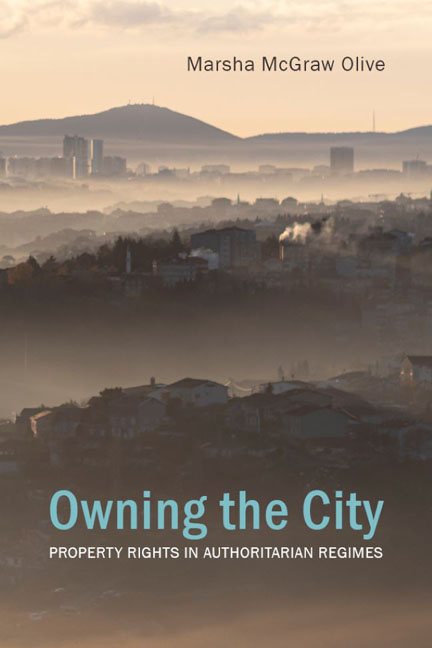Book contents
- Frontmatter
- Contents
- Acknowledgements
- List of Figures and Tables
- 1 Introduction and Argument
- 2 Globally Successful Cities
- 3 Urban Political Economy in Historical Perspective
- 4 Urban Land Governance: Liberal and Illiberal Patterns
- 5 Cautionary Tale: Moscow
- 6 Cautionary Tale: Istanbul
- 7 Conclusions and Prognosis
- Bibliography
- Index
2 - Globally Successful Cities
Published online by Cambridge University Press: 20 January 2024
- Frontmatter
- Contents
- Acknowledgements
- List of Figures and Tables
- 1 Introduction and Argument
- 2 Globally Successful Cities
- 3 Urban Political Economy in Historical Perspective
- 4 Urban Land Governance: Liberal and Illiberal Patterns
- 5 Cautionary Tale: Moscow
- 6 Cautionary Tale: Istanbul
- 7 Conclusions and Prognosis
- Bibliography
- Index
Summary
[I] t is pointless trying to decide if Zenobia is to be classified among the happy cities or among the unhappy. It makes no sense to divide cities into these two species, but rather, into another two: those that through the years and the changes continue to give their form to desires, and those in which desires either erase the city, or are erased by it.
Italo Calvino, Invisible Cities (1974 [1972])
Why are some cities successful and vibrant, when others are not? How does land governance fit into this dynamic? This chapter explores these questions from historical, economic and institutional perspectives. It begins by recounting the rise of global cities from anonymity to stardom.
States in the limelight
As of 2020, cities generated 80 per cent of the planet's wealth and housed half its people. They are global players, increasingly leading in world governance (Eden Strategy Institute 2018). Yet, until the turn of the twenty-first century, they were nearly invisible in many academic disciplines.
As the driver of world politics and trade, sovereign states held primacy as the unit of analysis for political science, economics and business. Political scientists compared states on dimensions of military power or political systems; economists on welfare or gross domestic product (GDP); business schools on innovation or competitiveness. Interdisciplinary fields such as international political economy (IPE) and comparative political economy (CPE), which emerged following the liberalization policies of US president Ronald Reagan and British prime minister Margaret Thatcher in the 1980s, analysed theinteraction of globalization with states or firms, but not cities. Because neither discipline considered the two-way causality of international capital flows and domestic housing markets, they missed the rising macroeconomic vulnerabilities exposed by household mortgage defaults, which sparked the 2007– 08 global financial crisis. Fuller (2019) correctly argues that both disciplines should take greater cognizance of the international macroeconomic impact of households as consumers of property debt, not just as workers. His point pertains equally to the success and vibrancy of cities as real property becomes increasingly commodified internationally.
The academic focus on states carried over into international institutions. Organizations such as the United Nations, World Bank and OECD, which are constituted by and for national governments, naturally devoted their efforts to state policies and practices. At the subnational level, rural regions carried higher weight as a development priority considering their concentration of global poverty.
- Type
- Chapter
- Information
- Owning the CityProperty Rights in Authoritarian Regimes, pp. 11 - 32Publisher: Agenda PublishingPrint publication year: 2022



